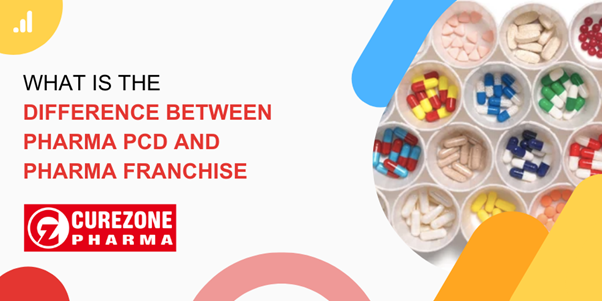Difference between Pharma PCD and Pharma Franchise?
1). Pharma PCD (Propaganda Cum Distribution): Pharma PCD involves a pharmaceutical company appointing distributors or individuals as its PCD partners to promote and distribute products in a designated area. PCD partners function as independent entities responsible for marketing products under the company's brand name. They target healthcare professionals, pharmacies, hospitals, and potential customers, purchasing products at a wholesale price for resale with a profit margin. The company provides promotional materials, product training, and support. Despite this support, PCD partners operate autonomously.
2). Pharma Franchise: Pharma franchise grants individuals or groups the right to sell and distribute a pharmaceutical company's products under its brand name in a specific geographic area. The franchisee, also known as the pharma franchise partner, operates as an extension of the parent company. They invest in business infrastructure, including premises, inventory, and promotional activities. Products are purchased directly from the parent company at a discounted rate, and the franchisee sells them with a profit margin. Support from the parent company includes marketing materials, training, and product knowledge, maintaining control over quality, branding, and overall business operations.
Further detailing the disparities between Pharma PCD and Pharma Franchise:
1). Ownership and Independence:
Pharma PCD:
Distributors or individuals act as independent entities, with ownership and control over their business operations.
Pharma Franchise:
Franchisees operate as an extension of the parent company, adhering to guidelines, potentially with less autonomy compared to PCD partners.
2). Investment and Infrastructure:
Pharma PCD:
PCD partners invest in their infrastructure, covering office space, distribution network, and promotional activities.
Pharma Franchise:
Franchisees invest in business infrastructure, including premises, stock inventory, and promotional materials. The initial investment is typically higher compared to PCD.
3). Product Sourcing and Pricing:
Pharma PCD:
PCD partners purchase products directly from the parent company, setting their prices and profit margins.
Pharma Franchise: Franchisees buy products at a discounted rate, with pricing often predetermined by the parent company, offering less flexibility.
4). Branding and Marketing:
Pharma PCD:
PCD partners promote products under the parent company's brand name, with more freedom in marketing strategies.
Pharma Franchise:
Franchisees operate under the parent company's brand, following guidelines and marketing strategies for brand consistency.
5). Support and Training:
Pharma PCD:
PCD partners receive limited support, including product training and promotional materials, managing their operations independently.
Pharma Franchise:
Franchisees receive extensive support, including training, marketing assistance, ongoing guidance, and help with business operations.
Pharma PCD and Pharma Franchise both involve pharmaceutical product distribution, with the key difference lying in the level of independence and control. Pharma PCD partners operate independently with more freedom, while Pharma Franchisees function as extensions of the parent company, maintaining brand consistency and following guidelines.
